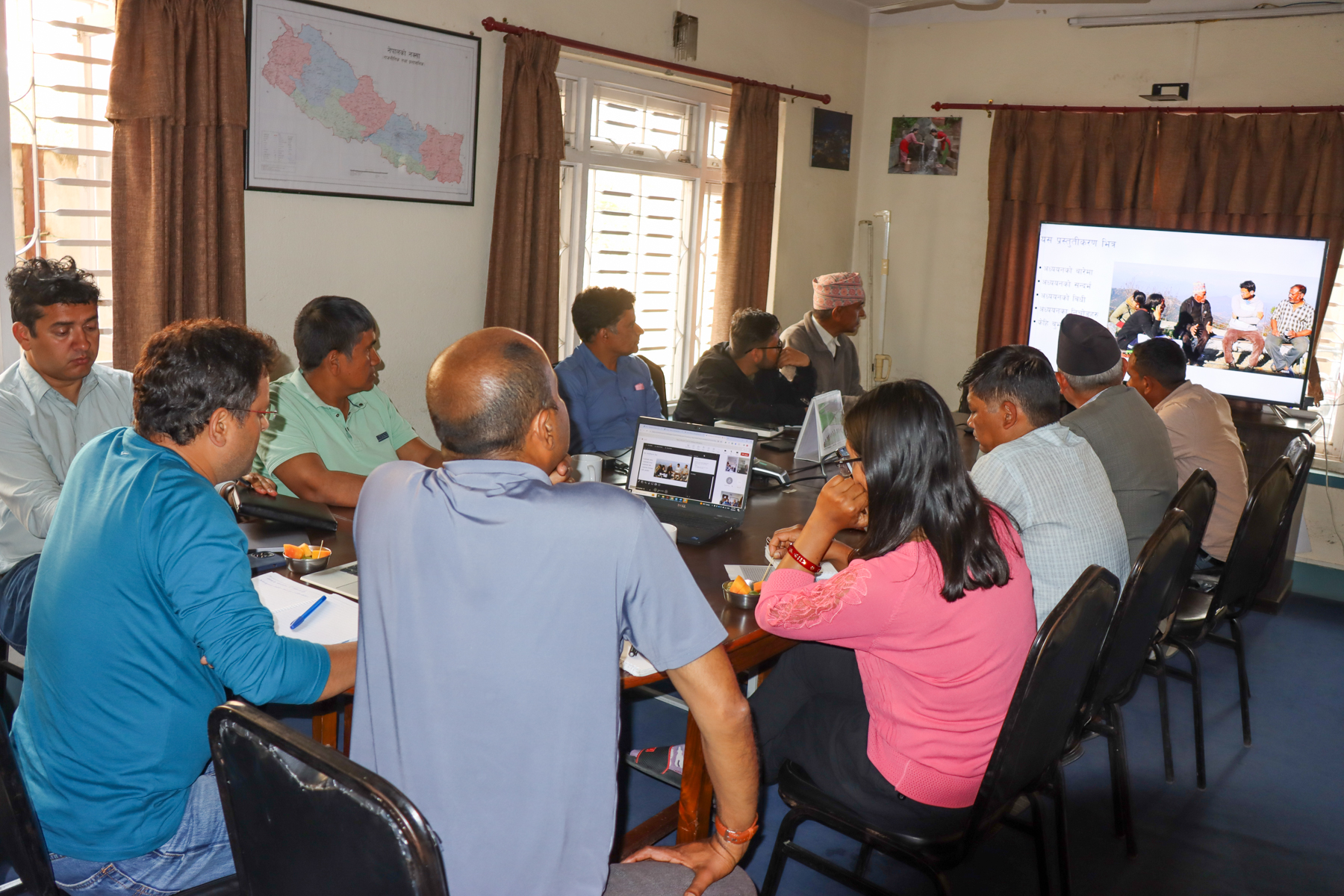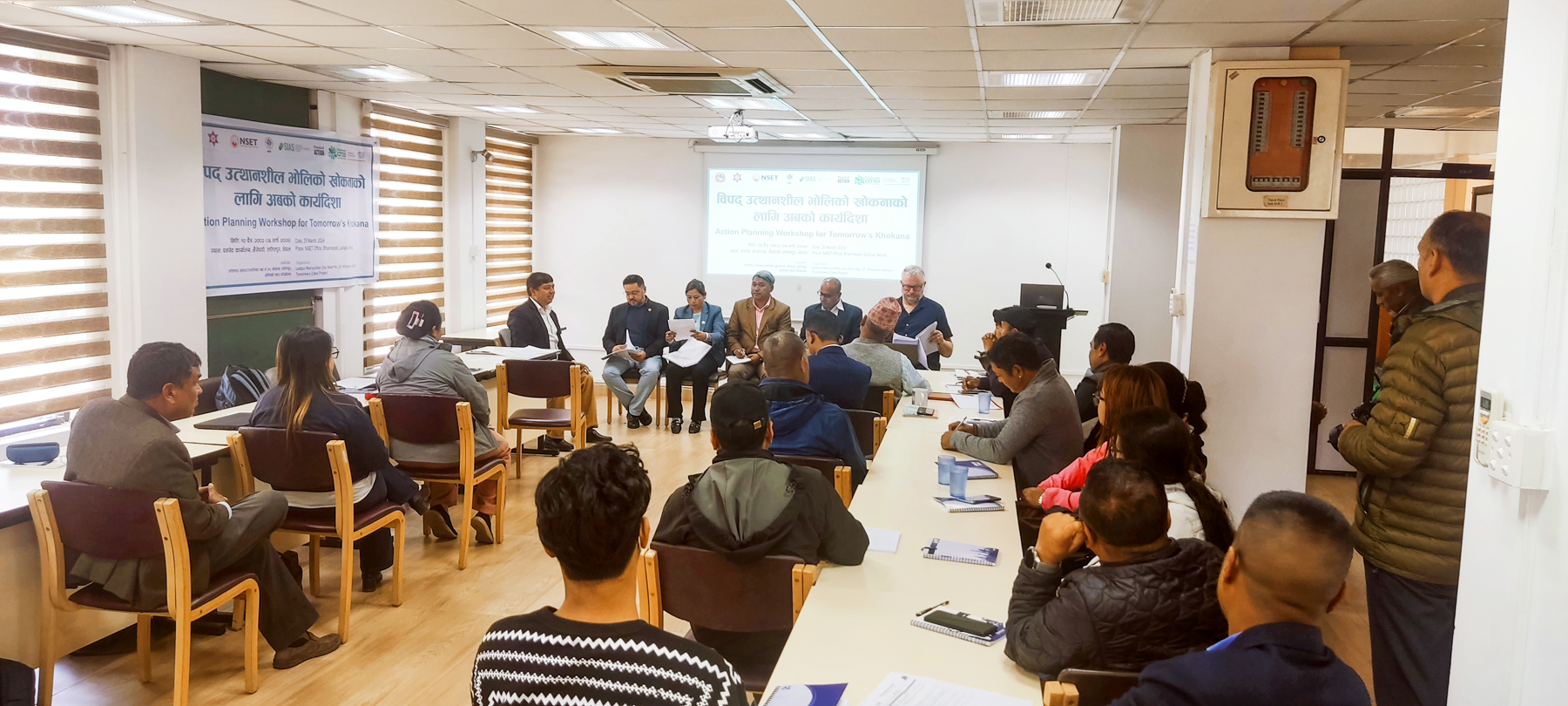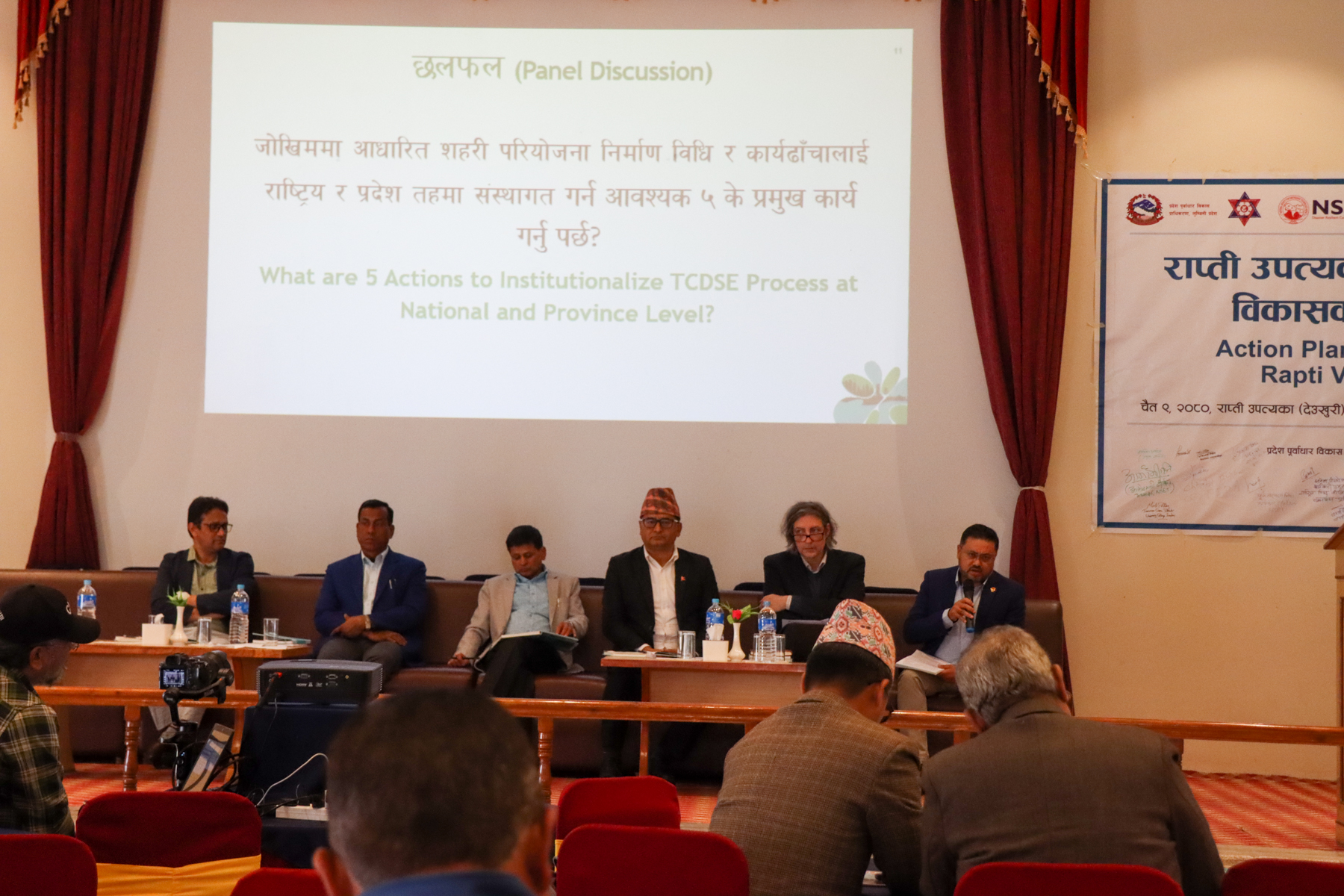The Southasia Institute of Advanced Studies (SIAS) together with The Chinese Academy of Sciences (CAS), China Civil Engineering Construction Corporation (CCECC) and China Railway First Survey and Design Institute Group Co. Ltd (FSDI) organized a half-day workshop in Kathmandu on August 7, 2023. The workshop brought together professors, researchers, and experts from various institutions to explore potential modalities, collaborative mechanisms, and frameworks for sustainable development of Nepal-China economic corridor. Participants included esteemed professors from CAS and Tribhuvan University, representatives from FSDI and CCECC, the Kathmandu Center for Research and Education (KCRE, CAS-TU), researchers from SIAS, infrastructure experts, geographers, and scholars.
The event started with Professor Song Zhouying from CAS outlining this collaborative research endeavor on the Green Development of Nepal-China Economic Corridor. The study aims to explore socio-economic, environmental, and geological aspects of the Himalayan region and promote trans-Himalayan Multi-Dimensional Connectivity Network. Five other presentations elaborated on the joint research project. Professor Song Tao from CAS provided an overview of the joint research project highlighting the importance of Himalayan Sustainable Goals. Tianli Xu from the KCRE, CAS-TU discussed the vision and mission of China-Nepal cooperation, including establishing observatory networks and nurturing scientific talents. Manager from FSDI Mr. Song presented a historical overview of China’s railways, showcasing their achievements in the sector. Vice President of CCECC, Hu Shezhong, introduced their company and highlighted its extensive operations across various countries and regions. Lastly, Professor Dinesh Paudel discussed the potential of Himalayan Economic Corridors as an opportunity for Nepal, expressing optimism that they could address development disparities, population decline, and geopolitical tensions, leading to a more balanced and sustainable future.
Plenary discussion session was chaired by Prof Paudel, wherein the participants advocated for adopting inclusive development by involving Nepalese experts in the design and development of infrastructure projects and facilitating technology transfer. Participants also highlighted the significance of a holistic approach to development, encompassing agriculture, livelihood, and tourism, rather than solely focusing on infrastructure and the economic corridor. Participants suggested addressing geopolitical issues through government-level agreements and actions and engaging in political-level dialogues and discussions for effective planning and implementation.




